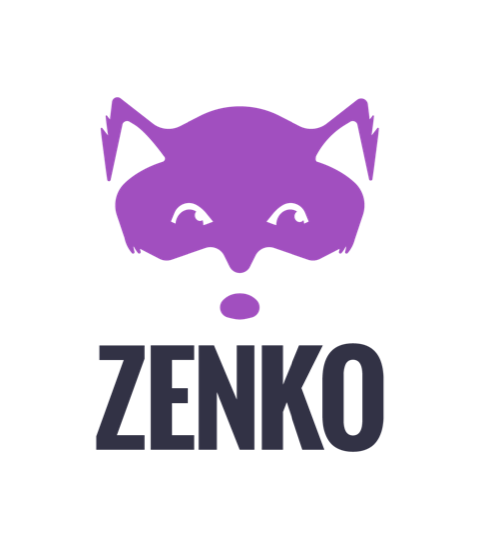Migrating MongoDB from KubeDB to Bitnami¶
Once a Zenko instance is up and running, you can migrate the MongoDB service from KubeDB to Bitnami by following these manual procedures.
Note
In the following documentation, artesca is the name of the Zenko instance, and the migration is intended for Zenko version 2.0.1 and earlier to 2.x.x.
The commands are written with the Zenko instance running Metalk8s, and the namespace is zenko and the instance name is artesca.
Before Upgrade¶
Make sure all the follwing resources are present, and that the Zenko instance is in a running state.
- mongodb/artesca-data-base-db
- secret/artesca-data-base-db-auth
- secret/artesca-data-base-db-cert
- secret/artesca-data-db-app-creds.v2
- volume/data-mongodb
- persistentvolume/data-mongodb
Verify Zenko is running and stable:
kubectl -n zenko describe zenko/artesca-data # example zenko conditions ... Conditions: Last Transition Time: 2021-09-17T02:16:21Z Message: All components ready to process requests Status: True Type: Available Last Transition Time: 2021-09-19T22:29:31Z Message: Deployment completed Status: False Type: DeploymentInProgress Last Transition Time: 2021-09-19T22:22:55Z Status: False Type: DeploymentFailure ... Ready Replicas: 1
Download the ISOs:
curl -u <user> -L -o /srv/scality/release/zenko-base-2.x.x.iso \ https://... curl -u <user> -L -o /srv/scality/release/zenko-2.x.x.iso \ https://...
Import and activate
zenko-basesolution:/srv/scality/metalk8s-2.9.2/solution.sh import -a /srv/scality/release/zenko-base-2.x.x.iso /srv/scality/metalk8s-2.9.2/solution.sh activate -n zenko-base -V 2.x.x
Import and activate
zenkosolution:/srv/scality/metalk8s-2.9.2/solution.sh import -a /srv/scality/release/zenko-2.x.x.iso /srv/scality/metalk8s-2.9.2/solution.sh activate -n zenko -V 2.x.x
Upgrade¶
The upgrade procedure will consist of:
- Deleting the KubeDB MongoDB deployment and freeing the PV resources used.
- Deploying MongoDB using the Bitnami charts.
- Updating the existing Zenko instance to use the Bitnami MongoDB.
- Updating the MongoDB replica set configuration.
Warning
The upgrade procedure will result in Zenko instance downtime, and the following services will not be operational:
- Cloudserver S3 APIs
- Backbeat APIs
- Orbit Management APIs
- Vault Management APIs
Update the Zenko-Operator¶
Update the
zenko-operatordeployment:/srv/scality/metalk8s-2.9.2/solution.sh add-solution -n zenko -s zenko -V 2.x.x
After a few seconds you should see the new operator running. From there you can update each component.
Deploy the Bitnami MongoDB¶
Create the secret resource manifest,
mongodb-creds.yamlMONGODB_ROOT_USERNAME=$(kubectl -n zenko get secret artesca-data-base-db-auth -o jsonpath='{.data.username}') MONGODB_ROOT_PASSWORD=$(kubectl -n zenko get secret artesca-data-base-db-auth -o jsonpath='{.data.password}') MONGODB_USERNAME=$(kubectl -n zenko get secret artesca-data-db-app-creds.v2 -o jsonpath='{.data.username}') MONGODB_PASSWORD=$(kubectl -n zenko get secret artesca-data-db-app-creds.v2 -o jsonpath='{.data.password}') MONGODB_REPLICA_SET_KEY=$(kubectl -n zenko get secret artesca-data-base-db-cert -o jsonpath='{.data.key\.txt}') INSTANCE_ID=$(kubectl -n zenko get zenko/artesca-data -o jsonpath='{.status.instanceID}' | base64) cat >> mongodb-creds.yaml <<EOF apiVersion: v1 kind: Secret metadata: name: mongodb-db-creds data: mongodb-root-username: $MONGODB_ROOT_USERNAME mongodb-root-password: $MONGODB_ROOT_PASSWORD mongodb-username: $MONGODB_USERNAME mongodb-password: $MONGODB_PASSWORD mongodb-database: $INSTANCE_ID mongodb-replica-set-key: $MONGODB_REPLICA_SET_KEY EOF- “mongodb-root-username” is the superadmin user name, “root”.
- “mongodb-root-password” is the superadmin user password.
- “mongodb-username” is the zenko application user name.
- “mongodb-password” is the zenko application user password.
- “mongodb-database” is the database the zenko user is allowed to access; this value is the instance id of the zenko instance.
- “mongodb-replica-set-key” are the credentials used for allowing members to be added to a replica set.
Copy either the /srv/scality/zenko-base-2.x.x/mongodb-1-node.yaml or /srv/scawlity/zenko-base-2.x.x/mongodb-3-nodes.yaml into a new file, mongodb.yaml.
Edit mongodb.yaml and replace the namespace placeholder, SOLUTION_ENV, with the value, “zenko”.
Edit mongodb.yaml and replace the storageClass placehodler, MONGODB_STORAGE_CLASS, with with the existing PV storage class type retrieved in the following manner:
kubectl get pv -l app.kubernetes.io/name=mongodb,app.kubernetes.io/part-of=zenko \ -o custom-columns=NAME:.metadata.name,STORAGECLASS:.spec.storageClassName NAME STORAGECLASS ... data-mongodb ssd-ext4 ...
Apply the manifest:
kubectl --namespace zenko apply -f mongodb.yaml
The deployment will be in a PENDING state and will wait until the required PV resources become Available.
Update the Zenko Resource¶
Retrieve the
Zenkoinstance id:INSTANCE_ID=$(kubectl -n zenko get zenko/artesca-data -o jsonpath='{.status.instanceID}')Update the zenko’s
mongodbspec:For one-node, create the zenko-patch.yaml file with the following contents:
cat >> zenko-patch.yaml <<EOF spec: version: 2.x.x mongodb: provider: External persistence: endpoints: - mongodb-primary-0.mongodb-headless.zenko.svc.cluster.local:27017 userSecretName: mongodb-db-creds usernameKey: mongodb-user passwordKey: mongodb-password replicaSetName: rs0 databaseName: ${INSTANCE_ID} EOFFor three-nodes, create the zenko-patch.yaml file with the following contents:
cat >> zenko-patch.yaml <<EOF spec: version: 2.x.x mongodb: provider: External persistence: endpoints: - mongodb-primary-0.mongodb-headless.zenko.svc.cluster.local:27017 - mongodb-secondary-0.mongodb-headless.zenko.svc.cluster.local:27017 - mongodb-secondary-1.mongodb-headless.zenko.svc.cluster.local:27017 userSecretName: mongodb-db-creds usernameKey: mongodb-user passwordKey: mongodb-password replicaSetName: rs0 databaseName: ${INSTANCE_ID} EOFApply the patch:
kubectl --kubeconfig /etc/kubernetes/admin.conf -n zenko patch zenko artesca-data --type merge --patch "$(cat zenko-patch.yaml)"
This will update the
Zenkoinstance to use the Bitnami MongoDB and put the Zenko in a DeploymentInProgress=True state until the MongoDB service becomes available. Additionally, the KubeDB MongoDB deployment will be deleted, and the DormantDatabase resources will be created.
Releasing and removing claims on the PV resources¶
Make sure the DormantDatabase resources are in a
Pausedstate.Once
Paused, delete the DormantDatabases resources:kubectl delete -n zenko dormantdatabase -l kubedb.com/kind=MongoDB
Delete the PVC created by KubeDB:
kubectl delete -n zenko pvc -l kubedb.com/kind=MongoDB,kubedb.com/name=artesca-data-base-db
Remove the claimRef from each PV to make them Available:
Retrieve the list of PVs:
kubectl get pv -l app.kubernetes.io/name=mongodb,app.kubernetes.io/part-of=zenko
Remove claimRef from each PV in the list:
kubectl patch pv <pv name> --type merge -p '{"spec":{"claimRef": null}}'
The Pending Bitnami MongoDB deployment should now be able to claim the existing PVs and start the creation of the MongoDB resources.
Configuring the MongoDB Replica Set¶
Wait for the mongodb-primary and mongodb-secondary statefulsets to be successfully deployed.
kubectl rollout status statefulset mongodb-primary # if deploying a multi-node configuration, run: kubectl rollout status statefulset mongodb-secondary
Access the mongo shell to start configuration procedure:
MONGODB_ROOT_USERNAME=$(kubectl -n zenko get secret mongodb-db-creds -o jsonpath='{.data.mongodb-root-username}' | base64 -d) MONGODB_ROOT_PASSWORD=$(kubectl -n zenko get secret mongodb-db-creds -o jsonpath='{.data.mongodb-root-password}' | base64 -d) kubectl -n zenko exec -ti mongodb-primary-0 -c mongodb-primary -- mongo -u $MONGODB_ROOT_USERNAME -p $MONGODB_ROOT_PASSWORDIn mongo shell, run the following commands:
Create rsconf variable in:
rs0:OTHER> rsconf = rs.conf()
Add replica set members:
rs0:OTHER> rsconf.members = [ ... {_id: 0, host: "mongodb-primary-0.mongodb-headless.zenko.svc.cluster.local:27017"} ... ]
If running 3-nodes, the following should be added:
rs0:OTHER> rsconf.members = [ ... {_id: 0, host: "mongodb-primary-0.mongodb-headless.zenko.svc.cluster.local:27017"}, ... {_id: 1, host: "mongodb-secondary-0.mongodb-headless.zenko.svc.cluster.local:27017"}, ... {_id: 2, host: "mongodb-secondary-1.mongodb-headless.zenko.svc.cluster.local:27017"} ... ]
Run rs.reconfig to elect new PRIMARY:
rs0:OTHER> rs.reconfig(rsconf, { force: true})
Verify the replica set is configured correctly:
rs0:PRIMARY> rs.status()["members"]
Verifying Zenko Deployment Status¶
Wait for the Zenko instance to be upgraded:
# wait for any existing errors from the upgrade to be resolved kubectl -n zenko wait --for condition=DeploymentFailure=false --timeout 10m zenko/artesca-data # wait for any for upgrade completion kubectl -n zenko wait --for condition=DeploymentInProgress=false --timeout 10m zenko/artesca-data
If an error occurs during the upgrade process or a upgrade times out, the following can be run to debug the issue:
kubectl -n zenko describe zenko/artesca-data
The
DeploymentFailurecondition will contain details about the error preventing the upgrade from completing.






